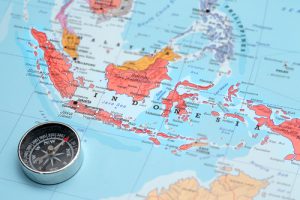
Bipartisan legislation introduced on April 24 by U.S. Sen. Cory Gardner (R-CO) seeks to grow U.S. influence in the Indo-Pacific region and to promote free and open markets based on international rules through a multi-faceted policy framework.
“This initiative is a generational approach that will put American interests first by reassuring our allies, deterring our adversaries and securing U.S. leadership in the region for future generations,” said Sen. Gardner, chairman of the U.S. Senate Foreign Relations Subcommittee on East Asia, the Pacific, and International Cybersecurity Policy.
Sen. Gardner introduced the Asia Reassurance Initiative Act (ARIA), S. 2736, after holding four subcommittee hearings in 2017 on developing a U.S. policy framework for the Indo-Pacific region. U.S. Sens. Todd Young (R-IN) and Ed Markey (D-MA), ranking member of the subcommittee, are among original cosponsors of S. 2736, which has been referred to the U.S. Senate Foreign Relations Committee.
“We believe that with this bipartisan vision for our Asia policy, the administration and Congress can be united on implementing a long-term strategy that will benefit American national security interests, promote American businesses and create jobs through trade opportunities and project American values of respect for the human rights and freedom that have made America the shining city upon a hill,” Sen. Gardner said.
The legislation would include substantive U.S. resource commitments, including the authorization of $1.5 billion annually for five years to enhance the U.S. presence in the Indo-Pacific, and $150 million a year for five years for democracy, rule of law and civil society support, according to a background paper provided by Gardner’s office.
The “American Leadership in the Asia Pacific” series of hearings that Sen. Gardner convened last year focused on security challenges, economic opportunities, human rights and U.S-China relations pertaining to the Indo-Pacific region. In one March 2017 hearing on security challenges, Sen. Gardner noted that ISIS has established a foothold in the region, North Korea had recently conducted ballistic missile tests, democracy and human rights are “generally in retreat across the region,” and China has reclaimed 3,000 maritime acres since 2013.
Sen. Markey said on April 24 that rules-based international order would be “absolutely fundamental to global peace and security” in Asia.
“This legislation reflects the region’s importance by addressing key challenges, including the peaceful denuclearization of North Korea, prioritizing reasonable and effective nonproliferation policies, promoting the freedom of navigation and overflight in maritime Asia, and defending human rights and the respect for democratic values,” Sen. Markey added.
U.S. Sen. Marco Rubio (R-FL), another cosponsor of S. 2736, noted that it would be critical for the United States to reaffirm its commitment to securing a free and open Indo-Pacific region amid “China’s increasingly assertive rise” there.
“This important piece of legislation will do just that by creating a framework for U.S. policy throughout the Indo-Pacific region on several key areas including trade, promotion of human rights, counterterrorism programs and many other national security priorities,” Sen. Rubio said. “To ensure the arc of history bends toward a free and open Indo-Pacific, regional democracies will have to cooperate more, which is precisely what this legislation aims to foster.”



